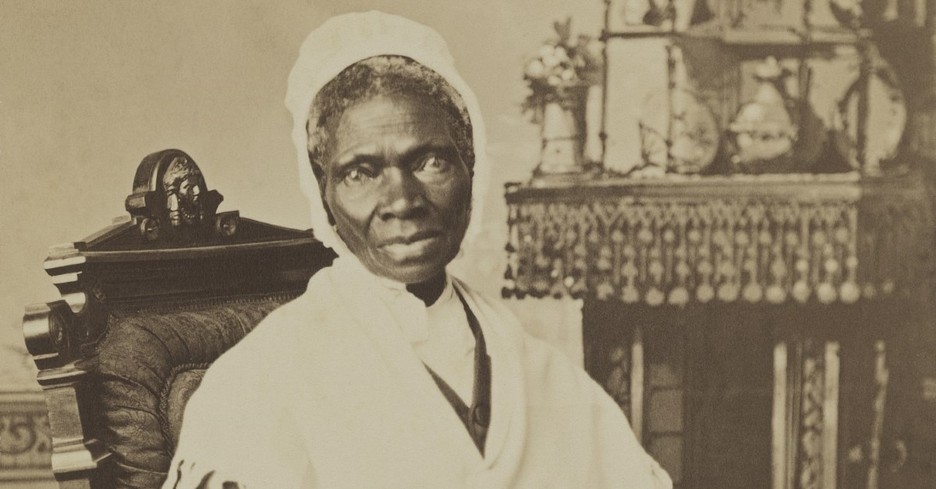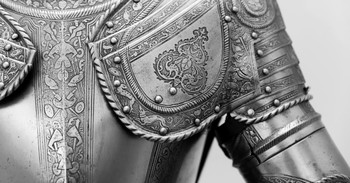
Born to Slavery
"Momma, I'm hungry and cold and my whole body hurts!" complained young Isabella at bedtime.
"Yes, child, I know you hurt. But remember, our master is better than some others. At least we are together."
Isabella had heard all this before, and she really was thankful to be with what remained of her family. It was just that when her stomach growled and her body ached from yet another beating, she often forgot.
"But Momma, it's just as if God has abandoned us here in this cold, miserable cellar." The words of doubt poured from the young girl's mouth even as tears streamed down her face.
Mau Mau Bett knelt down to Isabella's mat and began to rub her sore, bruised body. "No child. God will never leave you. He cares about you, and you can always count on Him to guide you." Mau Mau Bett tried her best to encourage her children in their faith. But even so, now and then little Isabella found her mother alone and singing sadly, "How long, O Lord? How long?" She too wished for the day she would be released from the burden of slavery.
Talking to God
Isabella worked hard on her special project. After dragging in the willow branches, she wove them and stacked them together. It was there in her very own little hideout that she began to talk to God.
"He hears me," Isabella told her mother one day as they worked side by side in the house.
"Yes, child, He does."
Isabella looked shyly at her mother. "Momma, I hear Him, too."
Mau Mau Bett paused in her dusting. "How do you hear Him?"
"I just do. It's like He talks to me."
Talking to God helped young Isabella cope with the fear that lurked around the edges of her life. Throughout her childhood, she was sold repeatedly, experienced regular whippings, and often had too little to eat. At times she believed she could bear no more pain or fear.
Around 1817, Isabella "married" for the second time. Since slave masters had complete control over slaves, their marriages were not recognized by law. Slaves would pledge themselves in marriage until "death or distance" kept them apart. Isabella's first husband had been sold away from the nearby farm, but her new husband, Thomas, belonged to the same master as Isabella. Together they had one boy and three girls, but their union was not to last either. Not only did the master sell Thomas, but he also sold her son Peter and illegally sent him across the state lines.
"I'll get him back, I will," Isabella vowed through her tears of pain.
Her mistress mocked her determination. "You don't have the money to get Peter back."
Isabella took a deep breath, confident in spite of the fear that filled her. "That's not a problem. God has plenty of it."
A Great Escape
An illiterate runaway slave with no money didn't have much chance of surviving, but Isabella decided she had no choice. In 1826, faith overcame her fear as she set out on her journey. "I'm going to trust you, God, every step," she prayed. "You tell me where to go and how to get there, and I'll follow you."
God led her to a Quaker couple called the Van Wagenens, who listened to her problems and decided to help.
"We'll buy your freedom," they said. "And we know where Peter is, and we can help get him back."
"How can I thank you enough?" she asked.
"Give your thanks to God!" they said. Isabella's eyes widened. She had never met nice white people. Because of their kindness, Isabella let go of the intense bitterness she had felt for many years. Her past was filled with the misery caused by her white masters, and hatred had filled her heart. But now, God used the Van Wagenens' kindness to show her another way.
A New Challenge
"But I have no training!" Isabella protested. "No experience."
"I'll give you both," replied a popular evangelist of the African Methodist Episcopal Church who saw a gift in Isabella. "I think the Lord has blessed you with a gift of speaking. You must use your gift to help spread the word."
Although Isabella had known about the Lord from a young age, she hadn't accepted him as her Savior until she was 30. Now in her 40s, she was being asked to go forth in ministry. Isabella accepted the call, but before she began, she wanted a new name, to represent her new life. As she told her friend, Harriet Beecher Stowe:
"My name was Isabella, but when I left the house of bondage, I left everything behind. I wa'nt goin' to keep nothin' of Egypt on me, an' so I went to the Lord an' asked Him to give me a new name. And the Lord gave me Sojourner, because I was to travel up an' down the land, showin' the people their sins, an' bein' a sign unto them. Afterwards I told the Lord I wanted another name, 'cause everybody else had two names, and the Lord gave me Truth, because I was to bring the truth to the people."
When they heard her news, Sojourner's children became alarmed. Traveling evangelism was uncertain enough, but it was ten times worse for a poor, uneducated black woman. They shot objections at her:
"Where will you stay?"
"How will you travel?"
"Women don't speak in public, Mama!"
"Especially not former slaves!"
Sojourner held up a hand. "This is God's doing, and He will protect me like an umbrella protects us from the sun an' the rain."
She began her work speaking in 1843, traveling mostly on foot. She often began her messages by saying, "Children, I talk to God and God talks to me!" She learned to rely on God when trouble broke out, as it did when she attended a revival meeting one day in 1844.
"Break up this here meeting, or we'll set fire to your tents!" The angry mob yelled at the speaker. Shaking with fear, Sojourner slipped away to hide in a corner of a tent. Torches flashed dangerously close, as she listened to her pounding heart.
"Hasn't God always been faithful to me? He is the same yesterday, today, and forever. He will be faithful in this as well." With renewed courage, she rose from the ground, straightened her dress and emerged from the tent. Gathering her nerve, Sojourner climbed a hill and began to sing a hymn to her Lord.
Rioters and worshippers stopped to listen. Then Sojourner's worst fears seemed about to come true. The protesters lunged forward, surrounding her with their sticks and clubs. "Why do you come about me with clubs and sticks?" she asked.
"We ain't goin' to hurt you," several men shouted. "We just want to hear you sing!" The rioting ceased as Sojourner lifted her voice in praise of God, who had once again protected her in danger.
Sojourner did not have the benefit of all the Christian education we have today. But, in spite of that, her deep faith led her to trust God in all circumstances.
Make It Real! Questions to make you dig a little deeper and think a little harder.
1. Even though they were slaves living in a basement with little food, Isabella's family still thanked God. Can you think of a time when you thanked God, even though things were going badly?
2. Isabella made a special place where she could pray and listen to God. Have you ever thought of setting aside a special place for prayer? What kind of place would you choose?
3. "Sojourner" means one who stays in a place for a short time. Why was this a good name for Isabella to choose? If you could choose a new name to represent your Christian life, what would you choose?
4. Sojourner trusted God through many different trials. Can you think of a time when it was hard for you to trust God?
Suggested reading:
Sojourner Truth by Susan Taylor-Boyd (Gareth Stevens Children's Books)
Sojourner Truth and the Voice of Freedom by Jane Shumate (The Millbrook Press)
A Picture Book of Sojourner Truth by David A. Adler (Holiday House)
Photo Credit: 1870 photograph via Wikimedia Commons.
This article is part of our People of Christianity catalog that features the stories, meaning, and significance of well-known people from the Bible and history. Here are some of the most popular articles for knowing important figures in Christianity:
How Did the Apostle Paul Die?
Who are the Nicolaitans in Revelation?
Who Was Deborah in the Bible?
Who Was Moses in the Bible?
King Solomon's Story in the Bible
Who Was Lot's Wife in the Bible?
Who Was Jezebel in the Bible?
Who Was the Prodigal Son?


